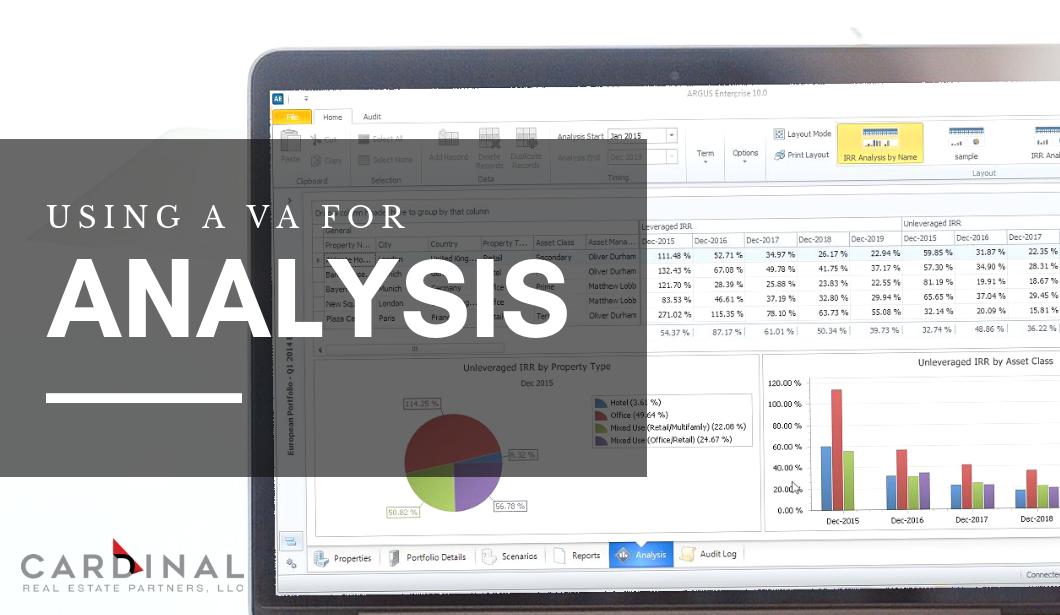You, my readers, know how much I love using virtual assistants and value how they help me complete tasks while freeing up my time for more productive pursuits. This may sound to be pushing the envelope to some, but last week I got a call from a NYC investor who invests $250M to $1B a year and his support team consists of two project managers, one personal assistant and a bunch of VAs. That was surprising to hear even for me, but the part that really blew me away is that he outsources his underwriting.
This idea will be unnerving to most investors, developers and brokers. I mean, what’s the scariest task you could delegate to an unknown person, located who knows where, working remotely? Your project underwriting or proforma.
You’re basically showing this person your secret sauce, all your business intel. This is the deliverable that you’re going to be relying on when presenting the investment memorandum to lenders, equity partners, friends at the country club, and others.
Delegating work to specialized VAs has worked wonderfully for me, and made my operations more efficient while retaining the professionalism and attention to detail I require. But even I am surprised to hear that this can be done with tasks like underwriting and accounting. I am not sure this is for me, but it makes a lot of sense.
Underwriting, or the thought of having to do underwriting is daunting. People often procrastinate, or do days and days of Argus runs building models only to become more confused. Or they spend a lot of money hiring a full time analyst when they may only need someone a few hours a week.
I thought I’d walk you through the process of delegating underwriting we can understand it better. I’ve been working through MyBackstageCrew.com, which I’ve mentioned recently in Cardinal Insights. With MyBackstageCrew.com, you’ll work with the same dedicated, experienced VA each time. I reached out to them and chatted with Jamie, their underwriting expert, over Zoom to have him explain how it all works.
Jamie knows commercial real estate. He is based in Charlotte and has a master’s degree in real estate from UNCC, is experienced in Argus, has worked with different product types, and has worked for legit real estate firms not only as an underwriter but as a team member making a project successful. Here’s an excerpt of what we talked about.
John: What type of clients are you working with?
Jamie: Technology is providing an opportunity for people who don’t have capacity or need for a full time analyst in their office. We fill that void. We’re an extension of the sponsor, or the investor. We don’t try to think for our clients, but we put their strategy or thoughts into a spreadsheet.
The smaller shops really lean on us to perform this financial work, because their expertise is putting deals together, networking, and raising capital. These are the highest-yielding tasks for them, business-development.
We also do a lot of work with developers. Some developers are really good at land planning, knowing what goes where, for example, but they are not as good at producing deliverables to take to equity. We produce the deliverables that they can confidently sell. Most developments take years to come to fruition, and keeping a full-time analyst on the payroll presents a major challenge to smaller firms.
John: Say someone wants to engage with you. How do you work?
Jamie: It’s an iterative process. They send over basic assumptions to get me started. I come back with a first draft and usually a list of questions. The devil’s in the details, and those details are usually unfolding for them as we go along. My philosophy has always been, a deal is never dead until you run out of ways to pivot. So having us in the background to deliver modeling of complex scenarios is crucial to the successful execution of any project. For instance, this can be particularly crucial during the conceptual design phase of a development. Square footages and unit counts are constantly changing and value-engineering can start to shape a final GMP budget.
If we’re building something from scratch, building an Argus model, or if it’s a small brokerage, these clients will tell me what they want. I’ll ask for a T12 or a rent roll and start from there. They’ll dump leases on me and I’ll abstract those, or whatever we need to do.
With my experience, I know everything that’s going to go into a deal. We deal with the big chunks first then we dial everything in and bring in other data points in smaller steps.
I refer to what I do as being their VP of Underwriting. I bring that level of experience and care but only focus on underwriting. They are the strategists and we are the foot soldiers.
John: What are your top tips for someone wanting to delegate underwriting?
Jamie: First, if you can, articulate your project well. I can advise you on the best way to execute a proforma for your project, and how to get from point A to point B to put your project in front of equity. But you need to articulate your project and strategy.
Second, know your deliverable. If you want something specific, ask for it. If you aren’t sure, I can advise you on what the best deliverable might be.
Third, clarify expectations as far as time to invest, cost and deadlines.
In general, be as specific as possible, but don’t micromanage. I can’t read your mind. Be prepared for me to ask questions.
A lot of real estate professionals don’t have or understand their own process with underwriting. I can share my process and help them figure things out. For those who are highly organized, they will appreciate my clear, transparent process. And those who don’t have any process will appreciate my help. We will lighten the load for them.
Think this is for you? If so, reach out to Jamie at MyBackstageCrew.com. And stay tuned to Cardinal Insights as I research new tricks and share tips on how to use technology to save time and improve your output.







